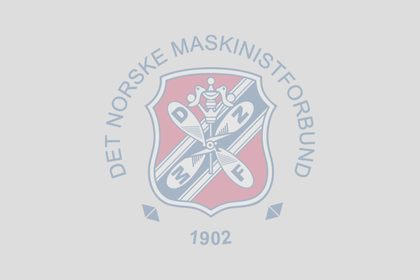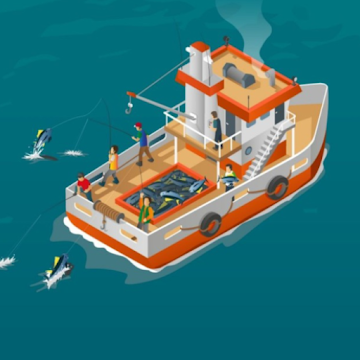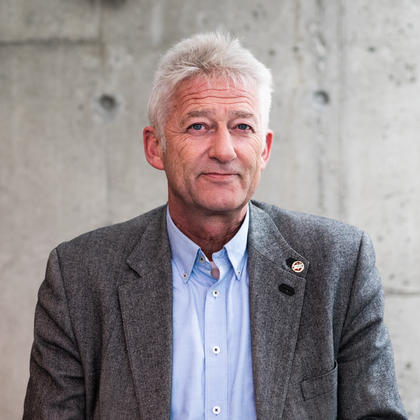News to know - from ETF
Read the latest News to know - from ETF.
What has the ETF been up to in March?
ETF-ETUI Sustainable Days kick-off event brought together key players in EU transport and beyond to reflect on the future of these industries. Their contributions confirmed the fundamental truth about transport today: fair transport is not a reality but an objective that can only be attained through collective action that will support a paradigm shift. Read more
ETF President Frank Moreels and ETF General Secretary Livia Spera dropped off a letter at the Romanian Embassy in Brussels to urge the Romanian Ministry of Transport to engage in social dialogue with Bucharest metro workers and guarantee the security of the USLM President. Read more
ETF fully supported Amazon's logistics workers and their historic strike on 22/03 against the company's refusal to negotiate a CBA with our Italian affiliates, FILT CGIL, Fit-Cisl and Uiltrasporti. Livia Spera spoke out in a video message, calling on Amazon to take responsibility for the abuse that happens because of the way they do business. Read more
On International Women's Day, the ETF joined the international trade union movement to call on governments to ratify the ILO Violence and Harassment Convention no. 190, which will come into force in June this year. ETF General Secretary Livia Spera spoke out against violence and harassment still being seen as part of the job in transport and underlined the need for employers and governments to fulfil their duties. Read more
The ETF Management Committee released a statement strongly advising the 7 European countries attacking the Mobility Package to reconsider and withdraw from legal action to ensure fair road transport. Read more
The ETF held a Seminar on the Minimum Wage Directive where affiliates discussed the topic and were informed about the current state of negotiations. Read more
ETF General Secretary Livia Spera joined the TriPartite Social Summit as part of the ETUC delegation. Trade unions speeches delivered are available here.
The ETF and ITF responded to the blockage of the Suez Canal and emphasised that unless the industry's 'race to the bottom' and workers' safety concerns are addressed, the world could be in store for another Even Given-type crisis sooner than we think. Read more
![]()
The first steering committee meeting of the common project: "A fair and sustainable waterborne transport in Europe: the maritime, inland navigation, ports and fishing sectors of the ETF build human-centred responses to global threats" took place. The project aims to:
- address what can be done to change the governance and structural system in place that allows the ongoing social dumping in the waterborne transport sectors,
- why do we need a fundamental change of direction, and
- how do we get there.
The ETF took part in a meeting with the European Commission and ECSA in anticipation of the ILO Special Tripartite Committee meeting on the Maritime Labour Convention 2006, as amended. We took the opportunity to highlight the wide-ranging implications of the pandemic on the seafarers and the implementation of all the aspects of the MLC 2006.
We have been made aware that some Member States may be considering excluding seafarers from the scope of the proposed Directive on adequate minimum wages in the European Union. We know that the relevance of this proposed Directive from the Commission has raised many questions within our trade union family. However, in this particular case, seafarers would again be out of reach of the general EU legal system, which might be used to protect them. Together with the ETUC, the ETF Secretariat is advocating towards the European institutions for seafarers not to be restricted and isolated from general EU employment law protection. Seafarers are not and should not be treated as second class workers and, therefore, should be covered by the EU legislation minimum standards applicable to all workers. Consequently, seafarers should not be excluded from the scope of this proposed Directive.
The Directive on transparent and predictable working conditions excludes seafarers and fishers from the scope of important provisions (parallel employment, minimum predictability of work, the sending of workers to another Member State or to a third country, transition to another form of employment, and providing information on the identity of the social security institutions receiving the social contributions). The ETF Secretariat continues to be involved, together with the ETUC, in the expert group's meetings set up by the European Commission. We continue to advocate that the special nature and conditions of life and work of seafarers and fishers cannot be an excuse for treating maritime issues separately and necessarily excluding these workers. We call for a consultation with the sectoral social partners at a national level when transposing the Directive in national laws.
The ETF secretariat (Dockers and Maritime Transport) held meetings with ports and maritime transport social partners and the European Commission on the implementation of Directive 2001/96/EC establishing harmonised requirements and procedures for the safe loading and unloading of bulk carriers. EMSA is carrying out visits to EU Member States to verify the correct implementation of the Directive. Overall, thus far, EMSA has found that in the national systems, the Member States comply with the requirements of the Directive. However, the visits have revealed several shortcomings, mainly focused on organisational arrangements and verification and enforcement. The main problem is that there is a lack of both harmonised and detailed data on occupational accidents involving dockers in terminals and on board ships. FEPORT is currently undertaking a study to highlight occupational accidents on board ships. We continue our collaboration with our social partners and the European Commission on this topic.
During ETF's Sustainable Transport Days, a dedicated waterborne transport session was held, focusing on safety on board ships. The seminar succeeded in clarifying OSH topics and highlighting common issues and linkages between the four ETF waterborne transport sectors. It showed the importance of employers taking an active role in protecting workers with necessary protective gear, as well as the importance of inspections, safety testing and standards, safety training, and that on board working conditions and hazards need to be carefully considered in vessel safety design and port fire safety design. The outcomes of this seminar will help us to elaborate on our positions and demands further.
On the topic of maritime transport, Denis Lagarde, a lecturer at Shipping and transport college in Rotterdam, spoke about occupational health and safety risks connected to alternative fuels and infrastructure. See more
On International Women's Day, ECSA and ETF reaffirmed their commitment to enhanced participation of women in European shipping. As part of the WESS project, they launched a survey that will help them determine the current state of women's employment in the sector and assess women seafarers' needs, the first step of an EU-funded project to increase women's participation in the shipping industry. Read more
On International Women's Day, the ETF published three video testimonies by women seafarers. We invite you to listen to what Dawn, Heather, and Sam have to say.

The ETF secretariat, together with Europêche, presented outcomes of their project on medical examinations of fishers to the European Commission at a sectoral social dialogue committees' liaison forum meeting dedicated to occupational health and safety. The guidelines on medical examination of fishers are currently being finalised.
The ETF welcomed the European Parliament Committee on Employment and Social Affairs' opinion on the key initiative report Fishers for the Future, which covers important priorities for the future of European fishers. The opinion is available here
During ETF's Sustainable Transport Days, a dedicated waterborne transport session was held, focusing on safety on board ships. The seminar succeeded in clarifying OSH topics and highlighting common issues and linkages between the four ETF waterborne transport sectors. It showed the importance of employers taking an active role in protecting workers with necessary protective gear, as well as the importance of inspections, safety testing and standards, safety training, and that on board working conditions and hazards need to be carefully considered in vessel safety design and port fire safety design. The outcomes of this seminar will help us to elaborate on our positions and demands further.
On the topic of fisheries, Juan Manuel Trujillo, ETF Fisheries Section chair, spoke about the need for modernisation and improved working conditions on fishing vessels. See more

On International Women's Day, the ETF joined the international trade union movement to call on governments to ratify the ILO Violence and Harassment Convention no. 190, which will come into force in June this year. Read more
Ahead of 8 March, Women's Committee Chair Sara Tripodi spoke out in a video message and called unions to use the ETF workplace guidance to address violence and harassment against women at work. View here
The ETF Women's Committee came together on 24 March to discuss the next steps of the Make Transport Fit for Women to Work in campaign, EU and ETUC initiatives on gender equality, and Turkey's recent withdrawal from the Istanbul Convention, which we highly condemn. Read more
ETF Deputy GS and Head of Gender Equality Sabine Trier spoke to SEKO's trade union newspaper Sekotidningen and spoke out on violence against women in transport and discussed the scope of the issue in rail. Read more

ETF Youth Committee met and discussed plans for 2021 activities. Some of the highlights include a young railway workers' event in the framework of the European year of rail, activities aimed at strengthening the voice of youth within the ETF, and cooperation with ETUC Youth and ITF Youth.


